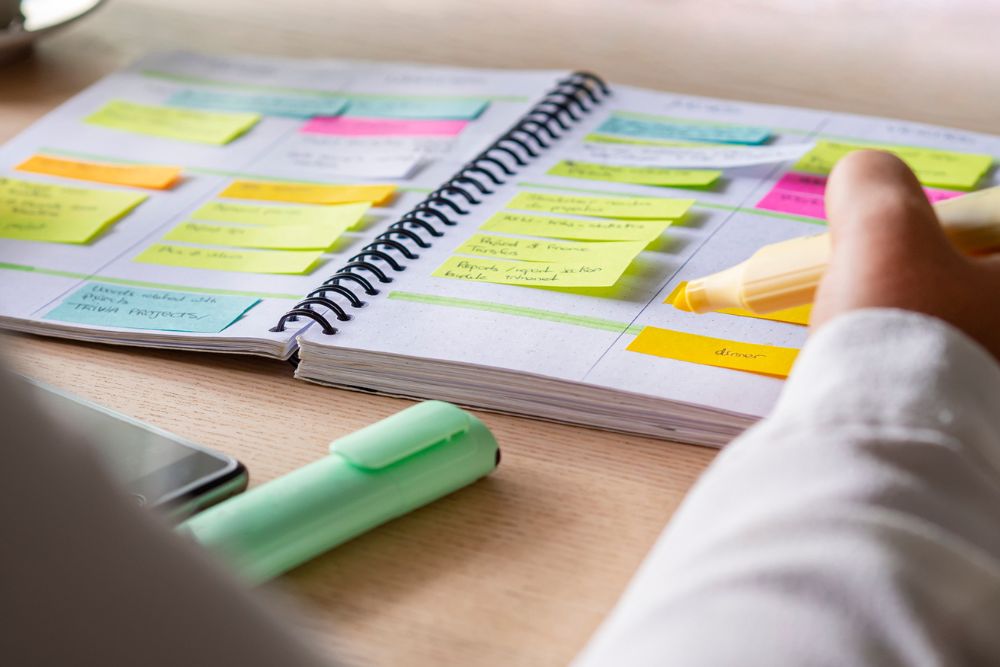Finishing addiction treatment isn’t the end—it’s a powerful beginning. A daily recovery practice provides structure, meaning, and resilience. Instead of relying on willpower alone, this framework gives your mind and body dependable rhythms and rituals. Let’s explore what it is, why it matters, and how to shape one that supports your long-term wellness.
What’s a Daily Recovery Practice?
It’s a personalized set of routines and rituals you follow each day to nourish your physical, emotional, and mental wellness. It often includes habits like planned sleep, healthy meals, movement, mindfulness, journaling, peer support, personal hygiene, and leisure. The goal? To build positive, automatic habits that protect against cravings, boredom, and stress—the most common relapse triggers.
Establishing a daily routine may seem simple, but its impact on recovery is anything but. The real power lies in how steady, everyday actions shape your mindset, reduce chaos, and help you move through life with greater clarity and confidence. Here are some reasons why.
- Creates predictability and reduces stress. Research shows that structure helps manage anxiety by cutting down uncertainty in daily life. You win back control by knowing what comes next, making stressors easier to navigate.
- Strengthens self-control over time. Just as muscles grow with exercise, self-discipline grows with routine. Committing to small, consistent actions—such as avoiding late nights or practicing morning rituals—builds impulse resistance over time.
- Supports holistic health. Sleep, nutrition, exercise, and hygiene all directly influence mood, cognition, and relapse prevention. Adopting wellness habits improves energy, emotional balance, and mental clarity.
- Prevents boredom and idle time. Unstructured hours might invite old cravings. A routine that includes hobbies, work, and community prevents empty stretches where relapse risk lurks.
- Encourages emotional regulation. Practices such as meditation, reflection, and creative time help manage emotions in healthy ways. Turning inward regularly gives you tools to respond calmly under pressure.
Components of a Daily Recovery Practice
There’s no one-size-fits-all approach to creating a purposeful life in sobriety. What helps one person stay centered may not resonate with someone else—and that’s okay. A strong daily recovery practice is built on intentional choices that feel meaningful to you. The key is to create a routine that supports your physical, mental, and emotional health in ways that are authentic, sustainable, and flexible as your needs evolve. The following suggestions provide a place to start.
Consistent Sleep Schedule
Aim for 7–9 hours of sleep each night. Harvard Sleep Medicine indicates that keeping a regular bedtime and wake-up time helps regulate your internal clock, improves energy, and reduces vulnerability to stress and cravings. Quality sleep supports decision-making and emotional stability—two critical aspects of long-term recovery.
Nutritious Meals
A balanced diet supports brain and body healing. Include plenty of fruits, vegetables, lean proteins, and whole grains. Nutritional stability helps balance mood and energy levels, reducing the likelihood of relapse triggered by fatigue or irritability.
Daily Movement
Physical activity—even a short walk or stretching session—can release mood-enhancing chemicals like endorphins and reduce stress hormones. Daily movement supports both mental clarity and emotional regulation.
Self-Care and Hygiene
Practicing good hygiene and basic grooming can boost self-respect and create a positive feedback loop. Feeling clean, dressed, and cared for often reinforces a healthy mindset and improves daily confidence.
Mindfulness or Relaxation Time
Daily mindfulness practices—such as meditation, breathwork, or quiet reflection—can help calm the nervous system and improve awareness of thoughts and triggers. Even a few minutes a day can reduce anxiety and support emotional regulation.
Reflective Journal Time
Writing about your thoughts, progress, challenges, and gratitude can deepen self-awareness and help you stay emotionally grounded. Journaling provides a private space to reflect and set intentions for your recovery journey.
Peer Connection or Support Groups
Maintaining regular contact with others in recovery helps you stay accountable and feel less isolated. Whether through phone calls, online groups, or local meetings, peer support strengthens commitment and encourages personal growth.
Purposeful Engagement
Spending time on hobbies, creative outlets, learning, or volunteer service work helps reinforce your identity beyond addiction. These activities also add joy, reduce boredom, and give structure to your day.
Evening Wind-Down Routine
Developing a calming nighttime routine—such as reading, turning off screens, or practicing gratitude—helps you fall asleep more easily and reflect on the day with peace and clarity.
Tips for Success
Begin by introducing just one or two manageable habits—like five minutes of journaling or a short walk—so the process feels achievable rather than overwhelming. Here’s just one example of what your daily recovery practice might look like:
- Morning: Wake up at a consistent time, engage in brief meditation or journaling, then have a nourishing breakfast.
- Midday: Enjoy a healthy lunch, followed by a brief walk or stretching, and refresh your hygiene.
- Afternoon: Choose meaningful work/hobby time, then seek out peer conversation or recovery support check-in.
- Evening: Enjoy a nutritious dinner, then pause for 15 minutes of journal reflection, and participate in a gentle wind-down activity.
- Night: Write a gratitude note, then shut down all devices and move into a soothing bedtime routine.
If you’re unsure where to begin or need help adjusting your routine, don’t hesitate to reach out to a healthcare provider or peer recovery specialist for guidance tailored to your needs.
Find More Ideas for Recovery Success at Ivory Plains
After the structure of addiction treatment, it’s sometimes challenging to know what the rest of your life will look like and how you can reinforce your wellness choices. At our inclusive residential rehabilitation program in Adair, Iowa, our board-certified professionals help you define what matters most and provide the right techniques so you have more control over your healthy lifestyle. Learn more about our approach from a member of our admissions team.





